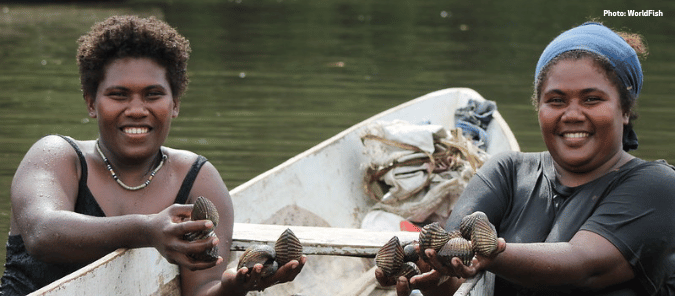At least 30 per cent of Solomon Islanders rely on fishing as an income source. Across these nearly 1,000 small islands, women play a crucial role in fisheries and fish value chains. Introducing solar-powered freezers to these women is helping to improve fish storage and bolsters their sense of ownership in their small businesses.
The freezers were initially distributed across nine villages as a trial, marking the first time refrigeration was available in these remote communities. The women owners rented out freezer space to other members of their village to store their fish and other perishable foods. The women also sometimes ordered frozen foods, like chicken or meat, from the capital, Honiara, which arrived on the fortnightly ship. These products were then sold for a profit in the village.
To finance their investment, the women formed committees and shared the task of carefully recording the earnings of each freezer. Their modest goal was to earn enough money to cover any repair costs. After a year, 637 people had used the freezers. Nearly 2,500 kilograms of fish had been stored and the women’s freezer committees had saved over US$5,000 — a significant amount of money in rural Solomon Islands.



